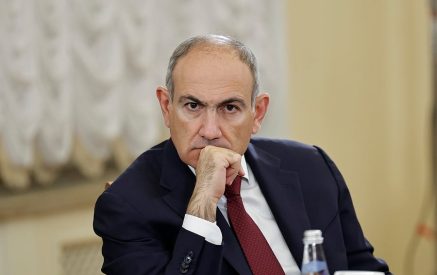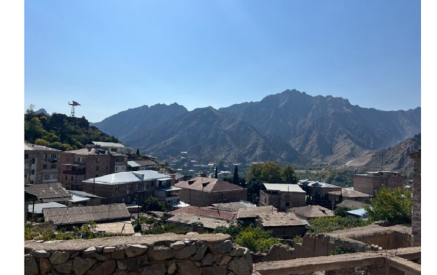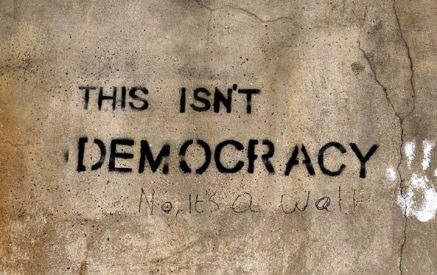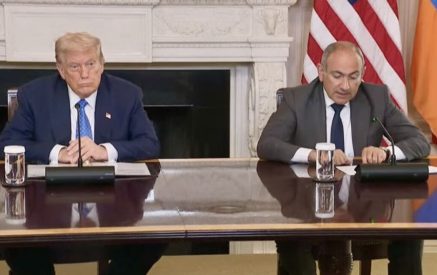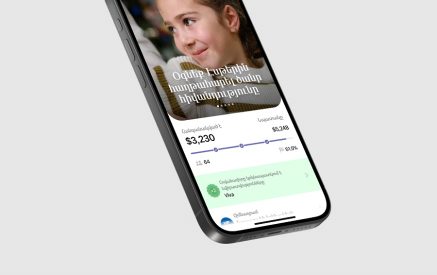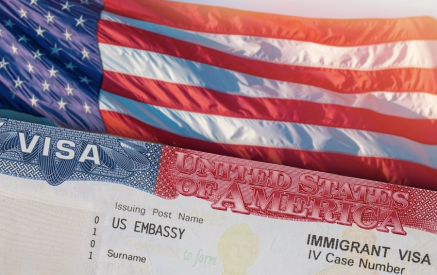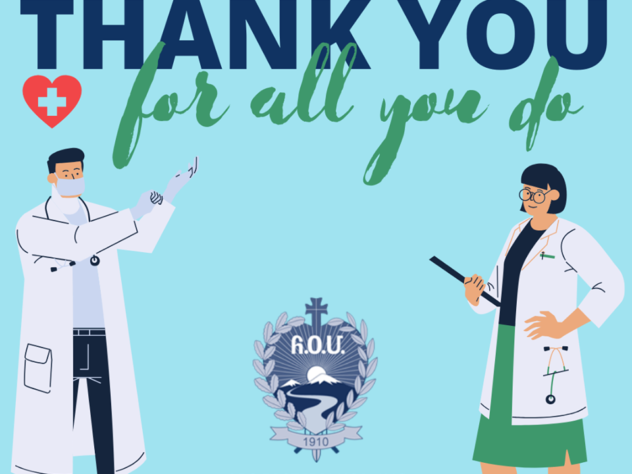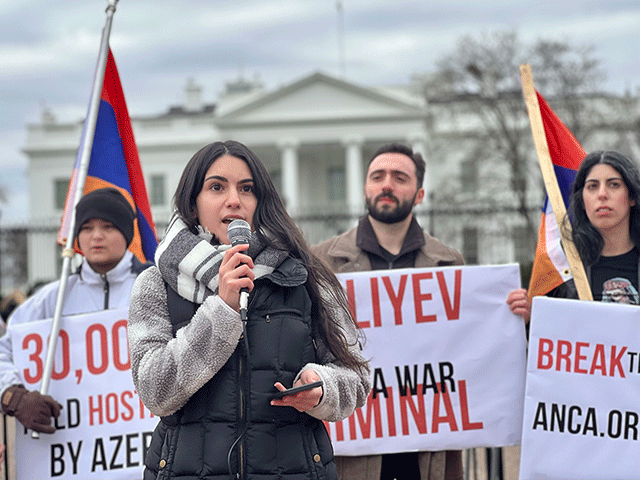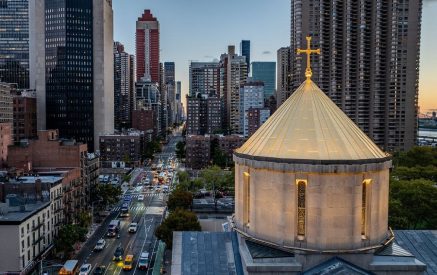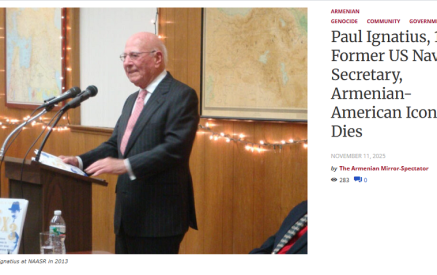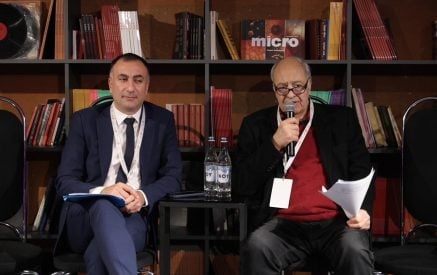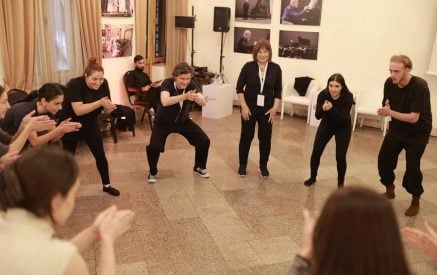The Armenian Weekly. With the rapid spread of the novel coronavirus, officially labeled COVID-19, around the world, many communities have seen their lives drastically changed. The Armenian-American community is certainly no exception, and many of us regularly interact with healthcare workers through our time and participation at church, Armenian Revolutionary Federation (ARF), Armenian Relief Society (ARS) and other organizations. I decided to interview them to get their unique perspective on this unprecedented situation. Due to the spread of misinformation pertaining to the coronavirus, many hospitals are wary of sharing information with the public, requiring some of those interviewed to seek approval from their employer before proceeding. In fact, one potential interviewee was not permitted to speak with me at all.
Yeretzgeen Alice Baljian, wife of Rev. Fr. Stephan Baljian of St. Gregory Armenian Apostolic Church of Merrimack Valley, works as a visiting nurse and is facing such changes. She has been “pre-screening patients for respiratory symptoms with fever” before she visits and taking the necessary actions to help them if they show such symptoms. She has also been extra careful in wearing “personal protective equipment during visits.”
Dr. Ari Nalbandian, an emergency room (ER) doctor who works in both Worcester and Marlborough, Massachusetts, also talked about the additional precautions he has taken at his place of work. “Patients with fever or respiratory symptoms who are designated as potential patients under risk for having COVID-19 are placed into a room under strict isolation precautions, meaning they cannot have visitors, the door to their room must remain closed, and any staff going into the room has to be properly dressed with a disposable gown, gloves, mask, and face shield.” Ani Megerdichian, a physician assistant at a community hospital in Rhode Island, offered a similar picture. “The Department of Health has opened a COVID-19 testing center on our hospital campus,” she said. “COVID-19 testing is by appointment only and at the discretion of the Department of Health.”
Dr. Nalbandian also discussed some tragic stories about the very real effects of this disease. He spoke about an elderly man he worked with who contracted the virus and had only very mild symptoms when he first went to the emergency room, only to return with much more severe symptoms, this time requiring oxygen. “We’re starting to see the case of people declining quite rapidly,” he said, “so the social distancing isolation stuff is no joke.”
Read also
The pandemic and society’s response to it is also having profound effects on the livelihoods of other healthcare workers. Pediatric dentist Dr. Fotini Dionisopoulos, along with her two pediatric dental partners, unanimously decided to temporarily close their practice two days before the Department of Health in Rhode Island required all dentists to close. “We knew that closing was the only way to protect our patients, staff and all of our families. Dentistry is high risk for transmission of the COVID-19 due to the proximity to the patient’s upper respiratory system to the dentist and the production of aerosols during treatment. The virus can live in the air in these aerosols for up to three hours”, explained “Dr. Fotini”. Currently, her practice is only treating patients for emergency situations, such as trauma to the teeth, infections, or severe pain. “Finding the balance is a difficult one – deciding what is totally necessary to address versus the health and safety of the patient and family if they defer treatment,” said Dr. Dionisopoulos. Addressing certain situations often prevents any possibility of those children and their families heading to the ER for treatment. That “lightens the load” of the already overburdened hospitals and staff and also protects families from potential exposure to the Coronavirus. “Dr. Fotini” also mentioned that dental offices nationwide are closed in order to help direct all protective equipment to those who need them most at this critical time: the first responders, nurses and physicians who are exposed directly to the virus.
While the healthcare workers of our communities are on the front lines of combating this virus, what are things that ordinary citizens can do to lighten the burden? “From the viewpoint of someone who works in a pharmacy, I would recommend people have their prescriptions delivered to their homes,” advised Ani Chobanian, who works as a pharmacy technician. She also recommended that if their insurance allows it, people should order “a 90-day supply of their medications. Being on the brink of a national lockdown, it is crucial that people have access to all the medications they need, without having to put themselves at risk.” Along these lines, Dr. Dionisopoulos advised that if people do need to go to a dentist for emergency situations, to go directly home afterwards, particularly if they are getting over an infection.
Megerdichian offered more general advice, particularly in regards to avoiding misinformation in a rapidly changing situation. “In order to get the best information, rely on reputable sources such as the Centers for Disease Control [CDC] and local Department of Health,” she advised. “If you are sick, stay home. Cover your mouth when sneezing/coughing and avoid touching your face.” Dr. Nalbandian gave similar advice. “Wash your hands, cover your mouth when you cough or sneeze, [and] wipe down surfaces.”
Most importantly, Dr. Nalbandian advises everyone to avoid the ER if at all possible. “If you have mild symptoms that you can deal with at home,” he said, “then stay at home and deal with it there. Contact your primary care physician to help determine the need for testing and to arrange for testing. Many hospitals are setting up tents and areas for ‘drive by testing’ where you can drive up, get swabbed and go home, in coordination with testing orders placed by physicians. If you do not have any symptoms, do not go to the emergency room ‘just to get checked out.’ By going to the ER when you don’t have to, you are exposing yourself and others to potential illnesses, and the ED [Emergency Department] is the last place you want to be. If you are not sick enough to need to be admitted, the end result doesn’t change: you go home and quarantine yourself. If you are having severe symptoms and are sick enough to need to be admitted to the hospital, that is a different story; by all means, let us take care of you.”
Dr. Nalbandian also reminds all of us to “maintain [our] spirits when at home, be it by keeping in touch with loved ones, music, exercise, prayer, meditation, or Netflix. Stay positive (hopefully not COVID positive!).”


